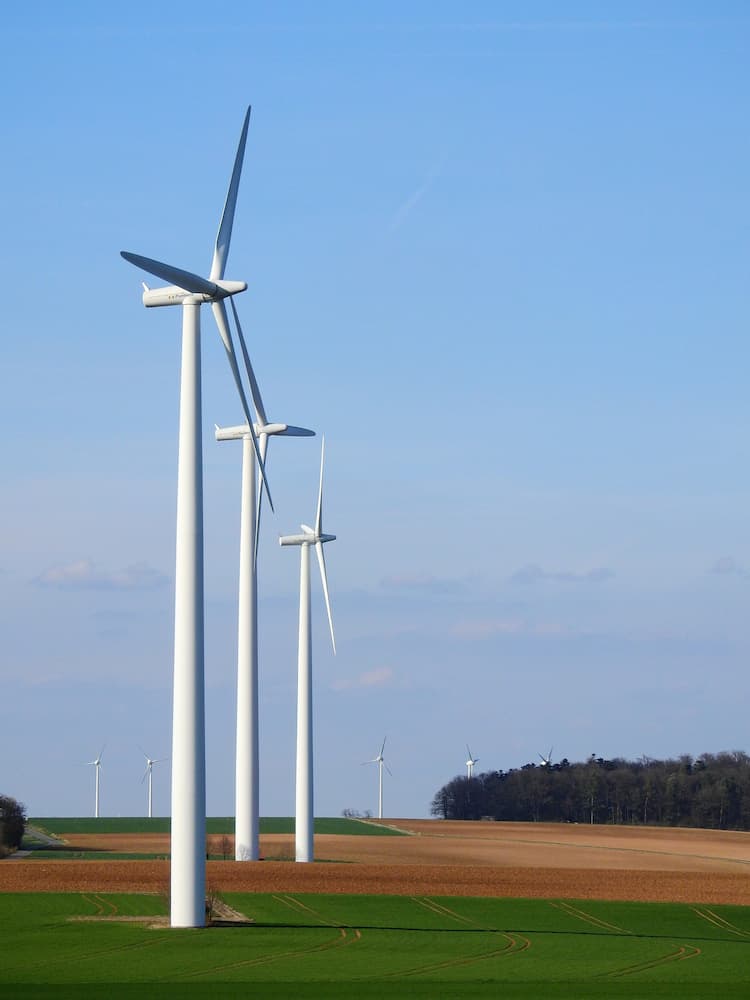The severe climatic crisis on the planet has led to the need for an early rejection of fossil fuels and the transition to alternative energy, “green” energy sources. Are they a good substitute for oil and coal, what are their advantages and disadvantages?
What is alternative energy?
Alternative energy sources include non-conventional energy sources such as solar, wind, geothermal, and so on.
Renewable energy sources do not pollute the environment, help reduce greenhouse gas emissions into the atmosphere, and reduce the effects of climate change. They are practically inexhaustible, while fossil fuels will run out sooner or later.
Renewable sources do not include nuclear power and natural gas, because these resources are limited.
Alternative Types of Energy
There are different types of energy and ways to produce it.
We can distinguish the following types of alternative energy sources: solar energy, wind energy, hydropower, wave energy, tidal energy, hydrothermal energy, fluid diffusion energy, geothermal energy, and biofuels.
The ways in which energy is extracted and used differ depending on the type of alternative sources. What they all have in common is that today they are all used much less frequently than fossil fuels, but they have a great potential for development.
The pros and cons of alternative energy
Currently, the production of alternative energy, despite its high environmental friendliness and promise, is limited. The development of technology on its basis has a number of costs, which have to be reckoned with.
Solar energy
Pros:
When you install solar panels on your home, you generate your own electricity, become less dependent on the electric grid and reduce your monthly electric bill.
Recent studies have shown that property values increase after solar panels are installed. The solar panels themselves become cheaper at the same time. So if you are wondering where to invest your money – buy another car, play online casino, or buy a solar panel at home. We recommend that you opt for the latter option.
The sun shines everywhere on Earth, which means solar power is a good option for every country, although there are differences by region and how much sunlight they get.
Cons:
Solar panels are not suitable for all types of roofs. Some roofing materials installed in older homes, such as slate or cedar shingles, may not be suitable for installing solar panels.
Solar power does not work at night. “Solar” households rely on the utility grid for electricity at night and in other situations where sunlight is limited.
The initial cost of installing and using solar power is very high because a person has to pay for the entire system – batteries, wires, solar panels, and so on.
Wind energy
Pros:
Wind turbines, which generate large amounts of electricity using wind, are almost as efficient as solar panels. Wind power is especially attractive to the residential market.
Since 1980, prices have fallen by more than 80%. Thanks to technological advances and increased demand, prices are expected to drop for the foreseeable future.
Cons:
Wind is not the most reliable source of energy, with turbines typically operating at about 30% capacity when it is low. In windless weather, you may find yourself without power.
Wind energy can only be used in places where wind speeds are high. Since high winds mostly blow in remote, unpopulated areas, power lines must be built to provide power to homes in the city. And that requires additional investment.
Hydropower
Pros:
Most hydroelectric plants, reservoirs of large quantities of water, almost always have a supply from which energy can be extracted. In this sense, hydroelectric power plants are a more reliable and stable source of energy than wind and solar power.
Storage hydroelectric plants are capable of generating electricity on demand, allowing hydroelectric plants to replace traditional dispatchable generators such as coal and gas plants.
Cons:
Accumulating hydropower plants interrupt the natural flow of the river system. This leads to disruption of animal migration routes and water quality problems.
Hydropower plants are large infrastructure projects involving the construction of a dam, reservoir, and power generating turbines, which requires a significant monetary investment.
Wave Energy
Pros:
Wave energy is predictable, and you can determine the amount of energy that can be produced.
Waves have a higher energy output than wind, for example, and this makes wave power more efficient.
Once proper power plants are installed, they have minimal operating costs, which makes investing in them more attractive.
Cons:
Although it is clean energy, its use poses a threat to marine life, changing the seafloor and the habitat of some of its inhabitants.
Wave energy only benefits power plants built in cities near the ocean.
Tidal energy
Pros:
The occurrence of tides is very predictable, making it easy to build a properly sized tidal power plant system for efficient power generation.
Tidal power plants have a life span of 75-100 years. They are very efficient even after many years of use.
Cons:
Tidal barrages cause ocean level changes in coastal waters. A tidal plant also affects the salinity of water in tidal pools.
Tidal power plants can only be built in areas that meet certain criteria.
Although the tides are predictable, power plants can only produce energy for 10 hours a day.
Hydrothermal energy
Pros:
Building plants to generate hydrothermal energy is low cost. Operating costs are also relatively low.
The water temperature is higher than the heated air temperature, making hydrothermal energy more efficient.
Cons:
The sun only heats the upper layers of the seas and oceans, so there are not many possible places to build stations.
The technology to generate hydrothermal energy is underdeveloped.
Fluid Diffusion Energy
Pros:
An osmotic power plant, a promising new method of generating electricity, is installed at the mouth of a river and allows energy to be extracted from the entropy of liquids.
Cons:
Liquid-diffusion power generation technologies are extremely underdeveloped. Only one osmotic power plant has been built in the world in Norway.
Geothermal energy
Pros:
Geothermal energy is known for having the least environmental impact.
The technologies associated with geothermal energy production are among the most innovative.
Cons:
Using geothermal energy involves high upfront costs. For an average-sized home, installing geothermal heat pumps costs $10,000 to $20,000.
In some situations, geothermal energy facilities are located far from populated areas, requiring an extensive network of distribution systems.
Biofuels
Pros:
One of the main advantages of biofuels is their relatively low cost.
Source materials for biofuels are not limited. Unlike fossil fuels, resources for biofuels can be renewed.
Cons:
Biofuels produce much less energy than, for example, fossil fuels.
Biofuels cannot be called environmentally friendly because they produce CO2 emissions.

Renewable energy in the world
Renewable energy is helping to combat climate change, which is becoming more destructive. Wind, solar, water, and other energy sources will be good substitutes for fossil fuels in the future. The sooner this happens, the better for us and our planet.
A growing sector creates jobs today, makes electric grids more sustainable, increases access to energy in developing countries, and helps lower energy bills. These factors have contributed to the growing popularity of renewable energy in recent years. The advantages of each type of alternative energy source definitely outweigh the disadvantages.
